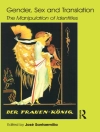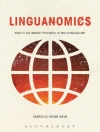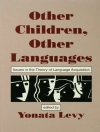This book sheds light on the role of mother tongue-based multilingual education (MTB MLE) as a means to enhance educational outcomes, creating a space for non-dominant languages alongside more dominant regional, national and international languages. It brings together a number of underlying concerns including the maintenance of non-dominant languages, the context of language policy and planning in shaping this process, the poor educational outcomes of many speakers of non-dominant languages in mainstream education programs and the economic and social importance of becoming multilingual. It focuses on the experiences of those involved in MTB MLE programs in early childhood, primary, secondary, tertiary and adult education from numerous settings in the Asia-Pacific region. This book provides readers with a detailed overview of MTB MLE, with a clear and insightful portrayal of the complex nature of policy and practice in both more accommodating and less accommodating sociopolitical environments.
Innehållsförteckning
Contributors
Suwilai Premsrirat and David Hirsh: Introduction
Part 1: Implementing Multilingual Education
Chapter 1. Susan Malone: Mother Tongue-Based Multilingual Education: Rationale, Purpose and Process in Asia and the Pacific
Chapter 2. Joseph Lo Bianco: An Idea Whose Time Has Come? Multilingual Education in Asia Pacific
Chapter 3. Muhammad Zaman Sagar and Susan Malone: Establishing Multilingual Education Programs in Non-Dominant Language Communities
Chapter 4. Dennis Malone and Erona Paschal Matti: Implementing Multilingual Education: The Parkari Community Development Program
Part 2: Pedagogy in Multilingual Education
Chapter 5. Sheldon F. Shaeffer: Mother Tongue and Early Childhood Care and Education: Synergies and Challenges
Chapter 6. Suwilai Premsrirat and Dennis Malone: Multilingual Education in Primary Grades: The Case of the Patani Malay-Thai Multilingual Education Project (Thailand)
Chapter 7. Ashley South, Emily Stenning and Tim Schroeder: Multilingual Education: Politics and Pedagogy: A Case Study on Myanmar’s Ethnic Education Systems
Chapter 8. Kirk R. Person and Mirinda Burarungrot: Multilingual Education and Teacher Training in Thailand
Part 3: Multilingualism, Literacy Development and Identity
Chapter 9. Susan Malone: Mother Tongue-Based Multilingual Education That Supports Multilingualism and Multiliteracy: Examples from Asia and the Pacific
Chapter 10. Stephen L. Walter and Mirinda Burarungrot: Assessment of Multilingual Education Programs
Chapter 11. Stephen L. Walter: The Impact of Partial Proficiency in the Language of Instruction on Learning Outcomes in Basic Education
Chapter 12. Panadda Pananil and Panadda Rerkplian: Obstacles to Identity Development and the Need for Multilingual Education: A Case Study of Shan Students in Chiang Mai, Thailand
Part 4: Developments in Multilingual Education
Chapter 13. Jessica Ball and Mariam Smith: Developments in Multilingual Education in Cambodia 2000 to 2020
Chapter 14. Kirk R. Person: What’s Next? Future Challenges for the Asia-Pacific Multilingual Education Movement
Om författaren
David Hirsh is Associate Professor at the University of Sydney, Australia. His areas of focus include language revitalization, bilingual education and academic acculturation. Related publications include Endangered Languages, Knowledge Systems and Belief Systems (Peter Lang, 2013) and Language Revitalization: Insights from Thailand (co-edited with Suwilai Premsrirat, Peter Lang, 2018).












